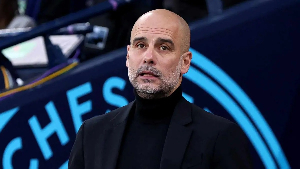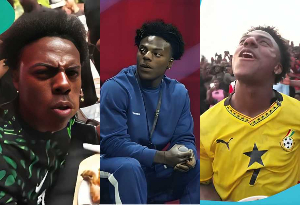The Founder/Chief Executive, We Code Caribbean, Safiya Olugbala, is making a name turning the Caribbean into a hub with startups success stories everywhere. She is behind a movement to get more people to explore opportunities in coding. She is providing a platform to use coding to drive business innovation. We Code Caribbean was incorporated on October 25, last year and launched publicly in January this year.
As the world faces a multitude of complex challenges, The Founder/, We Code Caribbean said science, technology, engineering and mathematics (STEM) have become critical in solving problems. She has taken up herself to engage children in STEM disciplines to enable them to take up challenging jobs in computer science and programming. Committed to empowering youths through computing and technology, she founded We Code Caribbean, to facilitate creators who want to work in digital platforms, and increase economic and social well-being by providing more youths with stable and lucrative careers.
She said: “We Code Caribbean offers an abundance of opportunities to youths to building solutions to tackle problems. My desperation to transform that reality, intensified when I became a mother. By one and a half, my son could communicate in Yoruba, French, Swahili and English. By age two, he could name every planet in the solar system and he could read and solve math problems. The only reason he possessed these anomalous capabilities was because he had access to opportunities through technology.
That access immediately redirected the trajectory of his lived experience. I wanted that level of success for every black child in the Caribbean. Hence, I joined the dot com arena.”
She said: “The primary objective is to teach youth from rural communities, how to CODE and use AI and IoT innovation, to positively impact the region. We Code Caribbean’s agenda is to lessen the wealth gap and close the digital divide.”
“The organisation sees it as critical, to empower youth to be the chief actors in solving persistent problems that plague the region. The primary objective is to teach youth from rural communities, how to code and use artificial intelligence (AI) and internet of things (IoT) innovation, to positively impact the region. We Code Caribbean’s agenda is to lessen the wealth gap and close the digital divide.”
She explained: “The only escape route that presented any promise for the elevation of youth in marginalised, underserved communities was technology. As an educator who had contributed to public education for over 20 years, I saw the glaring disparities of that system. It became an accepted reality that students in schools in rural communities failed.” According to her, the coding industry was a 50 billion dollar industry and wants allow Caribbean youth to access opportunities within the sector.
She maintained that the digital jobs market was exploding with skilled coders in demand. For this reason, children needed to be literate in technology throughout their education, developing ideas, learning new methods and putting them to the test.
The School of Coding founded by the organisation helps children to learn how to create robots, software, and animations. They are involved in a variety of class projects in robotics, building models, among other things.
The success story of the school showcases that when children realise their ability to code and build robots, they can be empowered to have successful futures and create innovative technology.
For her, artificial intelligence is a powerful tool to train youths of tomorrow. Her words: “The mission I imposed upon myself was to reimagine education in radical ways. Such bold imaginings meant that I had to somehow find a way to catapult an entire region into the 21st century. I would have to succeed where many before me failed. I would have to weaken the stronghold of colonialism and its predatory appetite for youthful potential. I would have to engineer an iron clad plan that would force the oppressive system to devour itself if I had any chance of liberating seven million young minds in the Caribbean.”
For an industry that is growing and offering strong prospect, she believes getting more youths to move alongside the emergence of new technologies, will lead to building future skills base.
Business News of Thursday, 5 November 2020
Source: thenationonlineng.net













